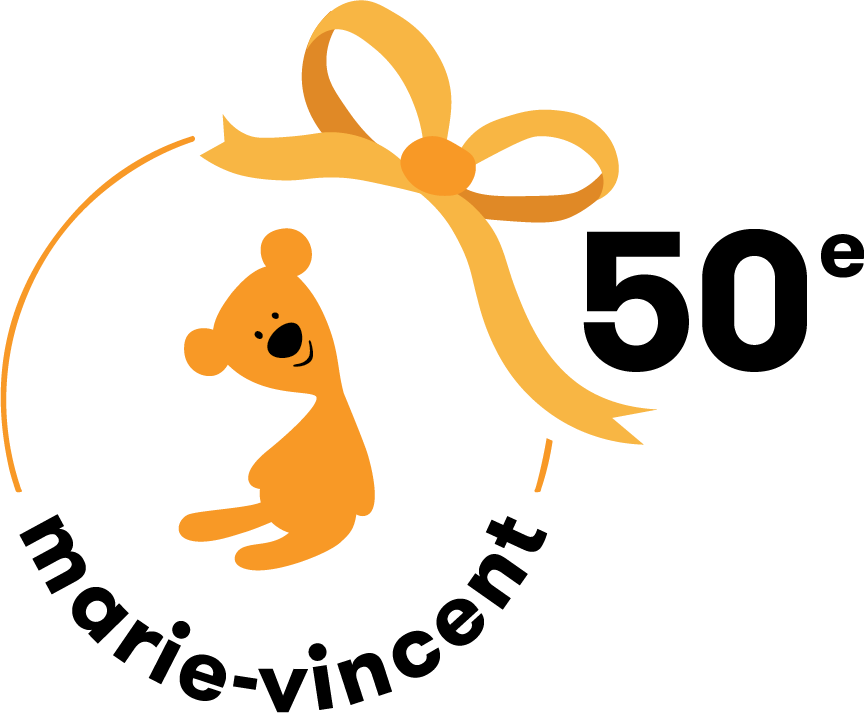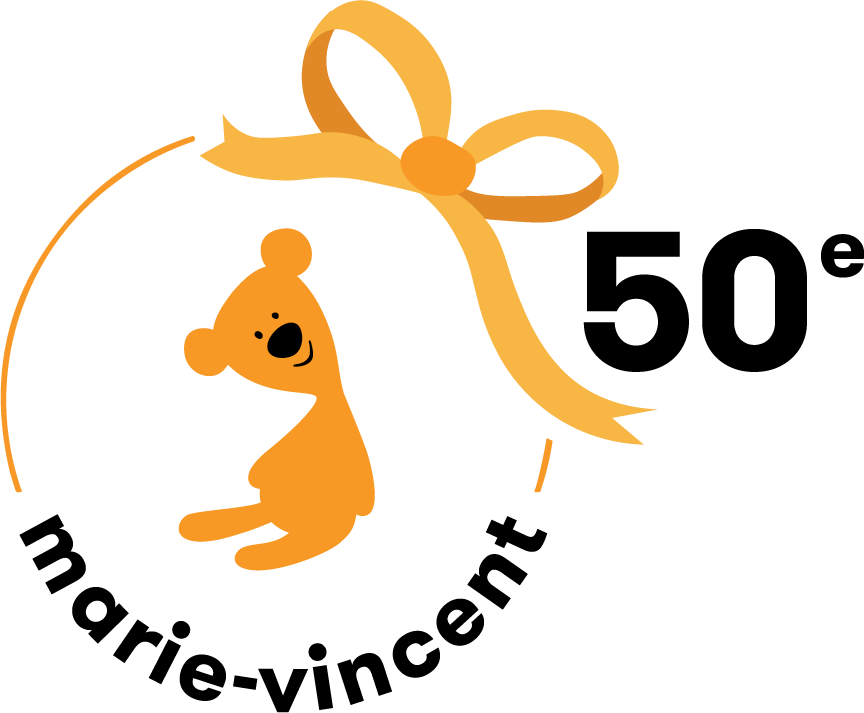Marie-Vincent Symposium – Preventing Sexual Violence from Ages 0-17
How can we prevent sexual violence from an early age and throughout youth development? How can we adapt our interventions to better equip young people at every stage of their lives?
On June 3, 2025, Marie-Vincent invites you to a day of reflection, discussion, and learning to address these essential questions. This symposium will bring together experts and professionals dedicated to protecting youth aged 0 to 17, highlighting concrete and field-adapted approaches.
Conferences, workshops, and partner organization booths will provide opportunities to explore practical strategies tailored to the realities of young people and the professionals who support them.
Scroll down to discover the program, speakers, and practical information.
With financial support from the Public Health Agency of Canada.
![]()


The day’s schedule
- 8:30 – 9:00 AM: Participant arrival and check-in
- 9:00 – 9:30 AM: Welcome remarks
- 9:30 – 10:30 AM: Opening keynote
- 10:30 – 11:00: Break
- 11:00 AM – 12:00 PM: Choice of 4 workshops
- 12:00 – 1:00 PM: Lunch
- 1:00 – 2:00 PM: Tour of kiosks
- 2:00 – 3:00 PM: Choice of 4 workshops
- 3:00 – 3:30 PM: Break
- 3:30 – 4:30 PM: Panel discussion


Discover the Exhibitor kiosks at the Symposium
Several organizations will be present with interactive kiosks to share their expertise.
Each kiosk will offer educational materials, intervention tools, and valuable information for professionals, families, and anyone interested in child protection and youth support.
Click here to view the list of exhibitor booths.
More kiosks will be added soon—stay tuned!


MORNING WORKSHOPS
Neurodiversity and Sex Education : Discover the Iris Project-L’Anonyme
Preventing sexual violence against neurodivergent youths (individuals on the autism spectrum and/or with an intellectual impairment) can seem a complex undertaking. Since 2018, L’Anonyme has implemented an array of initiatives aimed at reducing the incidence of sexual violence in this especially vulnerable group. With the Iris project, the team gives a neurodivergent clientele the means to develop behaviours that foster egalitarian, safe and consensual
intimate relationships. Iris’s four-phase approach (sex education workshops, training for professionals, individual sex education and interventional research) has been impactful in the various environments it has been implemented. This presentation will look at the success factors and challenges encountered during the project’s execution. The team will also share the most effective practices in sex education and intervention by underscoring the need to consider the self-determination and agentivity of this group of youths, who are so often misunderstood when it comes to issues of intimacy.
[sp_easyaccordion id=”2962″]


To prevent early sexualization of children is to also prevent sexual violence – Francine Duquet
The sexual messages disseminated by certain media or information technologies (reality shows, advertising, online video games, social network celebrities or influencers, online pornography, etc.) can at times portray a stereotypical, simplistic and even worrying image of sexuality. This is compounded by the difficulty for some adults to broach the topic of sex with young people. What impact can these images have on a child’s perception of body image, friendships or
intimate relationships, privacy, consent and more? How can we reframe the possible influence of this bombardment of sexual messages and develop their critical thinking, self-confidence and ability to assert themselves? In this workshop, we will concretely illustrate what we mean by social hypersexualization and early sexualization. We will look at the challenges created by these issues for children. Concrete intervention examples will be described to give adults the tools to provide guidance to youngsters. And lastly, the question of guidelines and boundaries will be examined, as they are crucial to sex education. They are fundamental tools for encouraging healthy psychosexual development and preventing sexual violence. In short, combatting early sexualization gives young people the knowledge they need to develop a healthy and egalitarian view of sexuality, thus reducing their vulnerability to abusive behaviours.
[sp_easyaccordion id=”2974″]


The Compass program/Prevention of Sexual Violence for Ages 6-12) in community centres, recreational centres and camps – Marie-Vincent
Developed by Marie-Vincent as a continuation of the Lantern program, the Compass program teaches prevention of sexual violence to children and youths ages 6 to 12 and their immediate entourage. It was designed for practitioners in the community and recreational settings as well as workers employed at day camps and summer camps (supervisors, team leaders, coordinators, psychosocial professionals and activity leaders). The Compass training modules aim to combat sexual violence against children and youths through sex education and the promotion of healthy, egalitarian relationships. A sex education toolkit, adapted and free of charge, is provided to all sectors that undertake the training. This workshop will look at the various development phases of the Compass program so that participants may learn its foundations, best practices for prevention of sexual violence for children and youths ages 6 to 12, and the Compass program tools.
[sp_easyaccordion id=”2975″]


Halftime project: Preventing violence and cyber sexual violence against student athletes – Marie-Vincent
In the last few years, we have seen numerous cases in the news of athletes disclosing the fact that they had been victims of violence, both in person and online. This newfound attention in the public sphere to the issue of sexual violence in sports sheds light on an enduring problem. To address this issue, Marie-Vincent is currently developing the Half-time project. The aim is the prevention of sexual violence and cyber sexual violence in school sports through educational activities and intervention measures for youths ages 12 to 17. The project is being funded by Public Safety Canada and will run from 2023 to 2028. This presentation will give participants an overview of the Halftime project and the phases it has implemented over the past two years. Some tools developed for it and aspects to be improved based on evaluations will be discussed.
[sp_easyaccordion id=”2976″]


AFTERNOON WORKSHOPS
Cyber-Heroes: Turning Adolescents into Allies to Combat Cyber Violence Against Girls, Women, and LGBTQ+ – Les 3 Sex*
Information and communication technologies (ICT), including cell phones and social networks, are an integral part of daily life and have a considerable influence on the way we interact and communicate with other people (Cousineau, 2021; Dunn, 2020). Digital spaces dedicated to group conversations, such as social networks and forums, have fostered the creation of spaces where individuals can congregate as a community to share various topics of mutual interest (Cousineau, 2021). These digital environments have also led to the rise of communities whose members share similar ideologies and express opinions on such topics as masculinity, misogyny and opposition to feminism, and thus creating the manosphere (Cousineau, 2021). Cyber-Heroes is a program for the prevention of cyber violence committed by adolescent males against girls, women and LGBTW+-Les 3 sex* individuals. This presentation is a concise portrait of the literature review, content in the prevention program on cyber-violence, the preliminary results of an awareness-raising campaign, and the obstacles and facilitators to working with boys and adolescents.
[sp_easyaccordion id=”2977″]


Children’s literature: A great way to teach sex education in a comprehensive, positive and inclusive way. – Nathalie Ringuette
This workshop will describe strategies and practical tools for teaching sex education to children ages 4 to 12. The focus will be on children’s literature as a vehicle for addressing various themes relating to sex education. The content will be based on a comprehensive, positive and inclusive view of sex and suggestions will be offered on how to better incorporate the profiles of children with special needs. Through concrete examples, participants will learn how to include these resources in their practice and thus teach sex education activities that are meaningful for children.
[sp_easyaccordion id=”2978″]


Prevention and interventions in cases of sexual exploitation; pooling of knowledge and tools – Marie-Vincent
Sexual exploitation and the trafficking of minors is a worrisome reality that is playing an increasingly prominent role in interventions with children and youths. “Heads or Tails” is a sexual exploitation and human trafficking prevention project that emphasizes self-esteem and the promotion of healthy, egalitarian relationships, consolidating knowledge and essential skills in young people and promoting the use of prevention tools for professionals and practitioners. This workshop is intended to give participants a deeper understanding of the issue of sexploitation, to identify risk factors, and to explore prevention and intervention strategies. Concrete, free tools in the prevention kit created by Marie-Vincent are designed to support professionals in their practices.
[sp_easyaccordion id=”2979″]


Pathway project: Pave the way for the prevention of sexual violence among children who need special support
Pathway project, a continuation of the Lantern program, is designed to establish preventive practices to protect children who need special support ages 4 to 12 from sexual violence. The project emphasizes tools and sex education training tailored to needs, empowerment, and the promotion of healthy, egalitarian relationships. Pathway project is intended for professionals in community organizations, schools (public, private or specialized) or early childhood education environments and for children who need special support. It was made possible by support from Fondation Lucie et André Chagnon.
For this workshop, participants are invited to learn the specifics of sexual violence prevention for children who need special support ages 4 to 12, as well as the various dynamic and adaptable tools developed for those children and their immediate entourage. *Pathway project and tools are more specifically intended for school-age children with cognitive and/or communication difficulties resulting from a mild intellectual impairment (ID), autism with mild needs or language issues (LD). For the sake of simplicity, however, the more general term “children who need special support” will be used.
[sp_easyaccordion id=”2980″]




